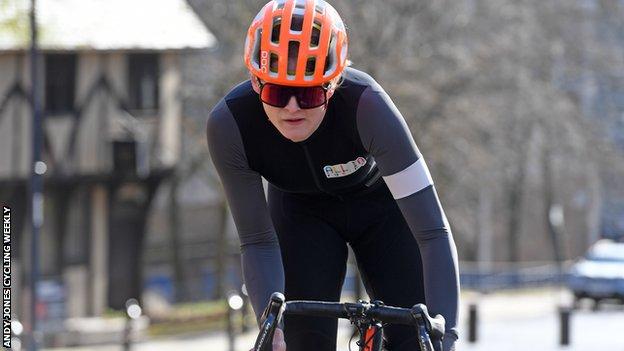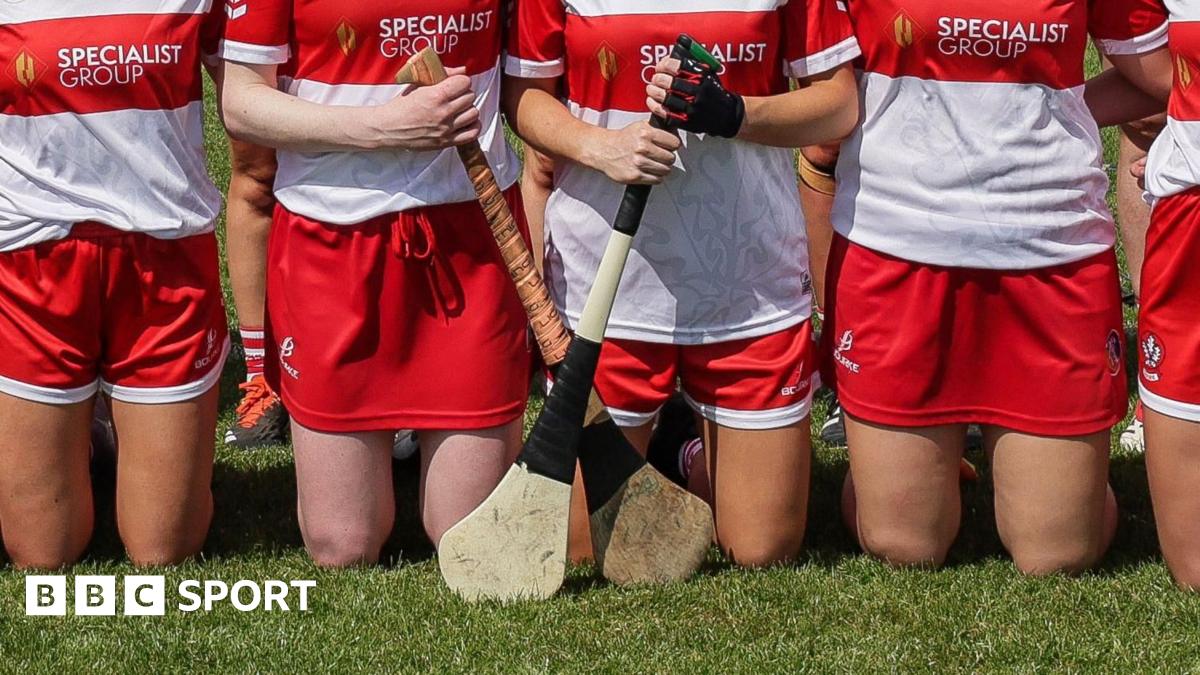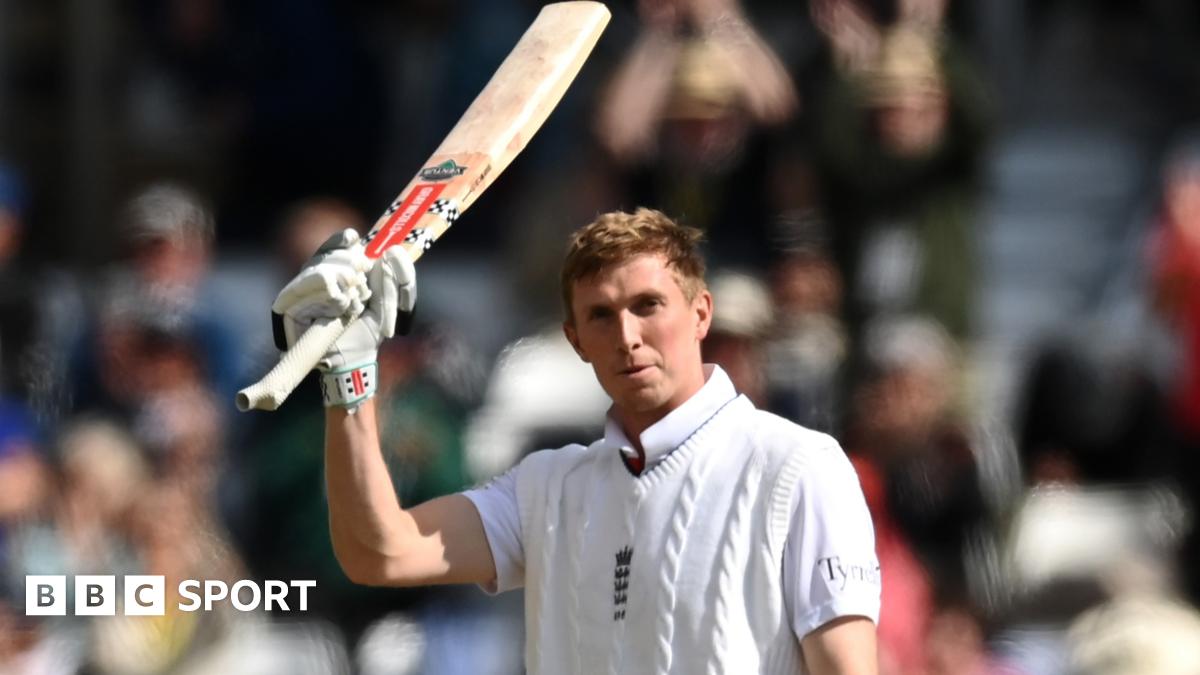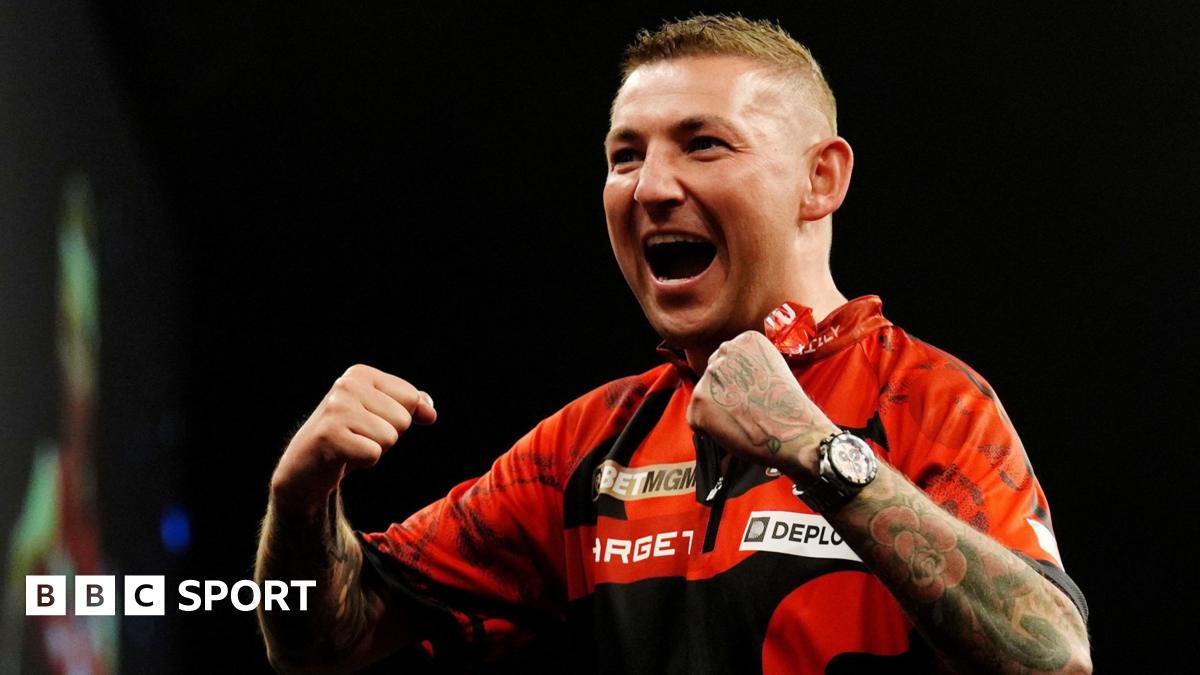ARTICLE AD BOX
 Emily Bridges previously set a national junior men's record over 25 miles and was selected to join British Cycling's senior academy in 2019
Emily Bridges previously set a national junior men's record over 25 miles and was selected to join British Cycling's senior academy in 2019UK Sport chief executive Sally Munday says she has "huge empathy" for transgender cyclist Emily Bridges and her competitors.
A group of elite female cyclists has called on the UCI, to "rescind" its rules around transgender participation.
"This is a complex topic and Emily has shown incredible courage," said Munday.
"I have huge empathy for Emily, I have huge empathy for the women who she would have been potentially competing against."
After being prevented from competing, Bridges released a statement saying she felt "harassed and demonised" and had "little clarity" on her eligibility.
She added that her privacy has been "totally violated" and that she has received "targeted abuse" on social media.
Munday said discussion on this issue must be conducted "respectfully" because "humans are at the centre of this".
She added: "It's incumbent on all of us, everyone in our community discussing this topic, to do so with sensitivity."
Munday said UK Sport wants to ensure Bridges "has the right support" and is in "regular discussion" with British Cycling about the support she is getting.
She added the organisation would fund Bridges if she was selected and given approval by the UCI to compete for Britain, stating: "We will support any athlete who a sport's governing body has deemed has future potential and is eligible to compete."
Munday also said this is a "much bigger topic" and that UK Sport are looking to support "everybody who is involved in this discussion".
She said that the issue of transgender athletes in elite sport "has not been around in volume for a long time" so this is "relatively new territory" for a lot of sports.
She suggested it should be "down to each sport to find their own solutions both domestically and internationally" and sports will have different views on "where it's appropriate to draw the line around either inclusion or fairness or safety".
Prime Minister Johnson enters debate
On Wednesday, UK Prime Minister Boris Johnson said he does not believe transgender women should compete in female sporting events.
In response, LGBTQ+ charity Stonewall said: "Trans people deserve the same opportunities as everyone else to enjoy the benefits of sport and blanket exclusions on trans people participating are fundamentally unfair."
When asked about Johnson's comments, Munday said: "With regards to what is said politically we have been really clear in our guidance, it's down for sport to decide and to work with their international federations about what the rules should be internationally and it's down to sports to decide what should happen domestically.
"What's really important is that we make sure as a sporting industry we are inclusive, that we are welcoming, that we enable everybody that wants to play sport to play sport.
"Where inclusion bumps up against fairness and safety is down for an individual sport to consider and make decisions that are most appropriate for that sport and it's the sports that should be making those decisions."
Where do sports bodies and athletes stand on issue?
An 18-month review developed by Sport England, Sport Scotland, Sport Northern Ireland, Sport Wales and UK Sport concluded that "testosterone suppression is unlikely to guarantee fairness between transgender women and natal females in gender-affected sports".
Their guidance applies to transgender inclusion in non-elite sport.
Bridges had been set to race at Britain's National Omnium Championships in Derby last weekend.
She came out as transgender in October 2020 and began hormone therapy in 2021 as part of her gender dysphoria treatment.
She had been allowed to enter women's events by British Cycling because of her consistently lowered levels of testosterone.
British Cycling's transgender regulations require riders to have had testosterone levels below five nanomoles per litre for a 12-month period prior to competition.
However, the UCI has not yet completed its own process around Bridges' eligibility to race in international competitions - meaning she could not participate.
The UCI rules on transgender inclusion also state it must "protect health and safety" and "guarantee fair and meaningful competition that displays and rewards the fundamental values and meaning of the sport".
A letter signed by a group of elite female cyclists - including retired Olympians, scientists and researchers - called on the UCI to "rescind" its rules around transgender participation and testosterone levels and implement eligibility criteria for women "based on female biological characteristics".
The letter - referring to the Bridges situation - said there was "deep regret" at the "crisis situation", claiming female athletes in the UK "have shown you they were willing to boycott" in order for the UCI and British Cycling "to hear their concerns about fairness in their sport".
The letter included the signature of Sara Symington, head of Olympic and Paralympic programmes at British Cycling. It states:
- Current transgender rules should be "rescinded" unless the UCI can provide "robust scientific evidence that the rules guarantee fairness for female athletes"
- Lower testosterone levels "cannot sufficiently mitigate all male sport advantage"
- Current rules are "asymmetric" and "discriminatory" and the UCI needs to "better involve" the "independent voice of elite female athletes"
In response, British Cycling said: "We understand that this is an important issue for our staff and riders, which is why we have worked hard to provide forums for them to openly share their views on our policy and transgender inclusion more widely.
"These discussions are an important part of our commitment to learn and understand more about how the sport sector can achieve fairness in a way that maintains the dignity and respect of all athletes."
The UCI said it "acknowledges the necessity to constantly review and update its regulations on eligibility for women transgender athletes, with the objective of ensuring equity and fairness".
It added: "We will continue to duly monitor the evolution of society and seek to collect as much medical data as possible in order to provide for rules which provide for a balance between the rights of transgender athletes to take part in sports and the integrity of women's competitions."

 3 years ago
74
3 years ago
74








 English (US) ·
English (US) ·